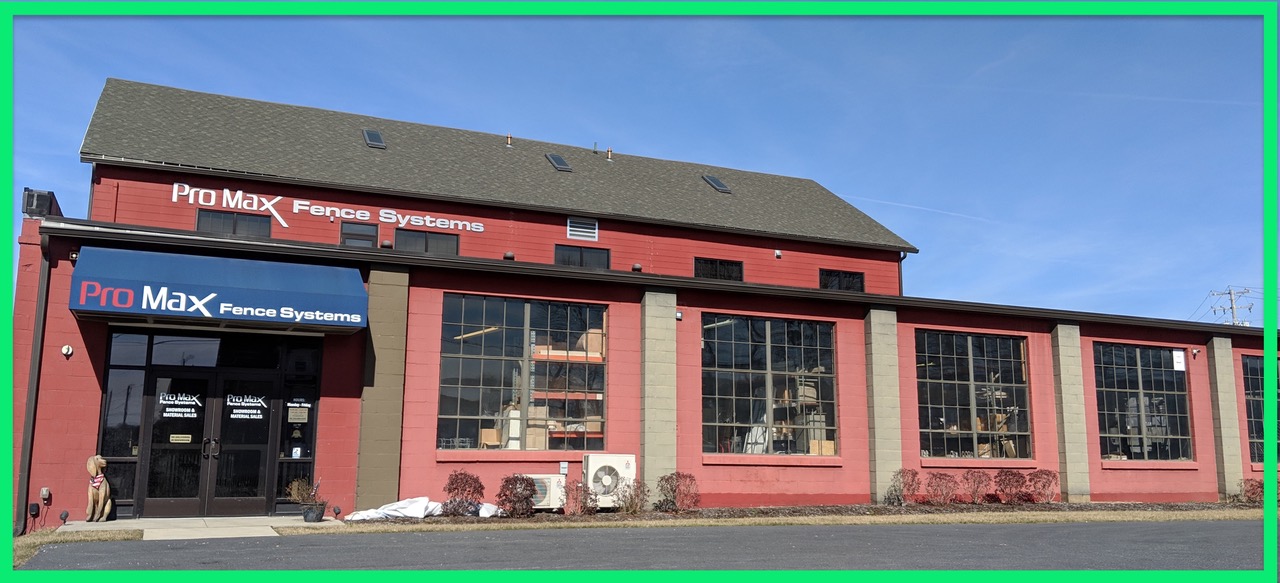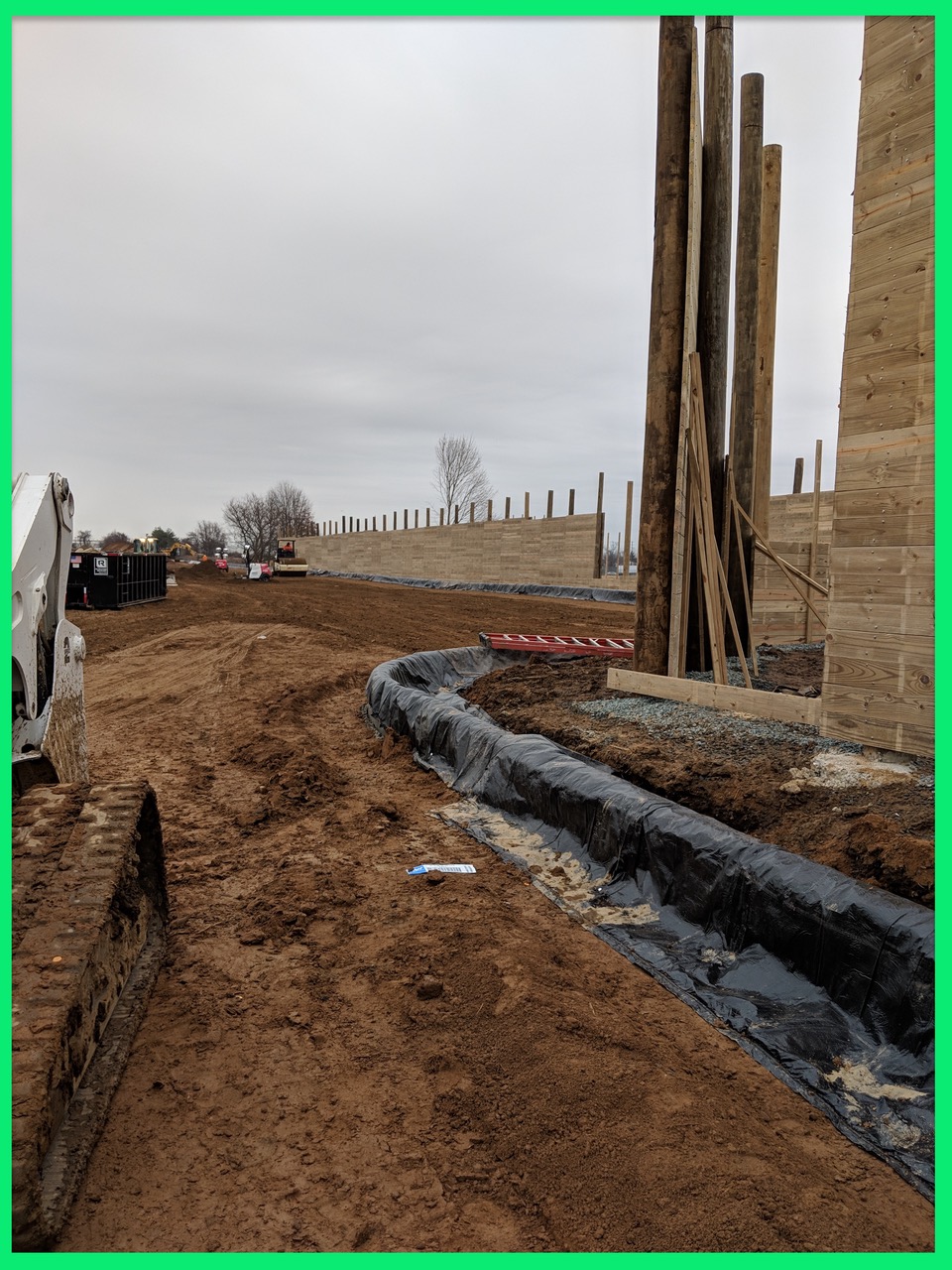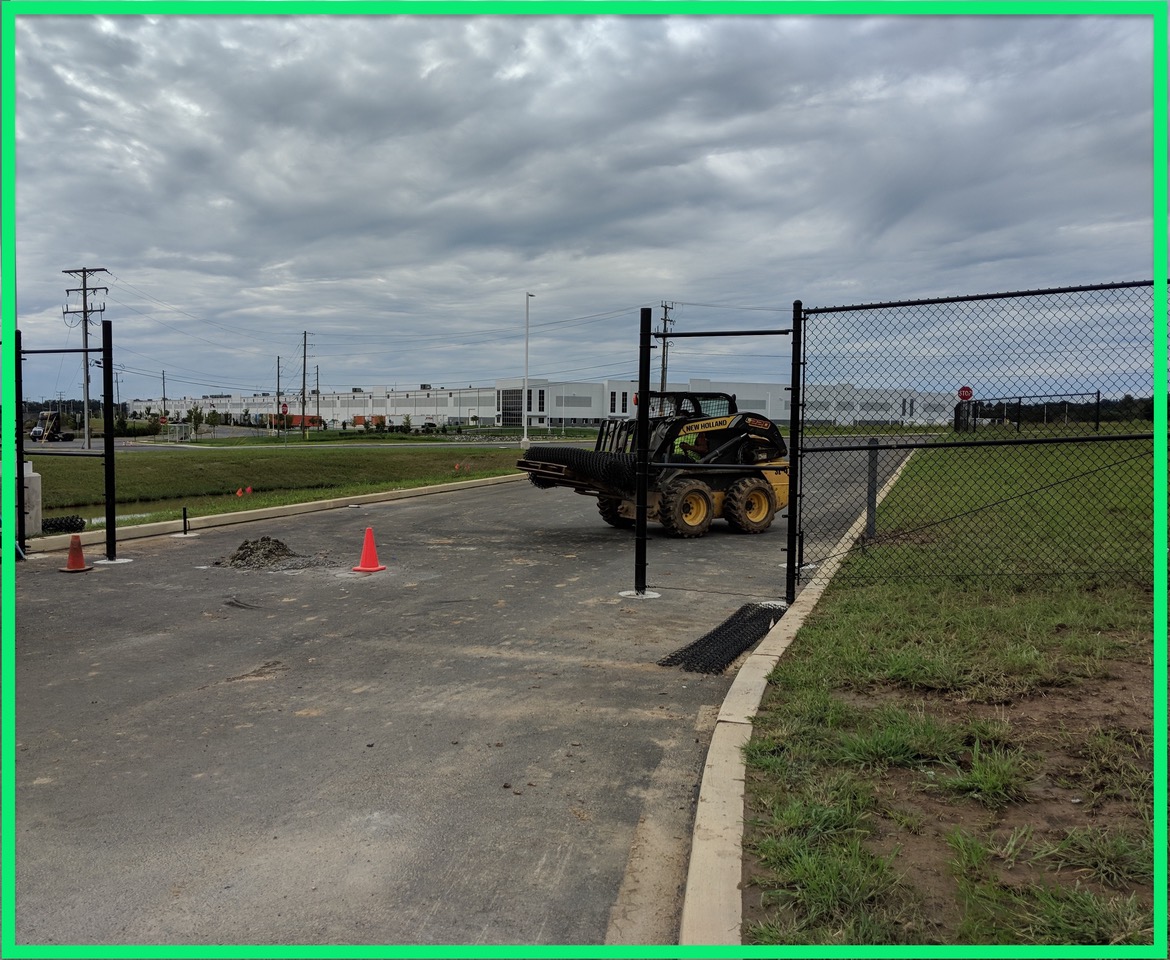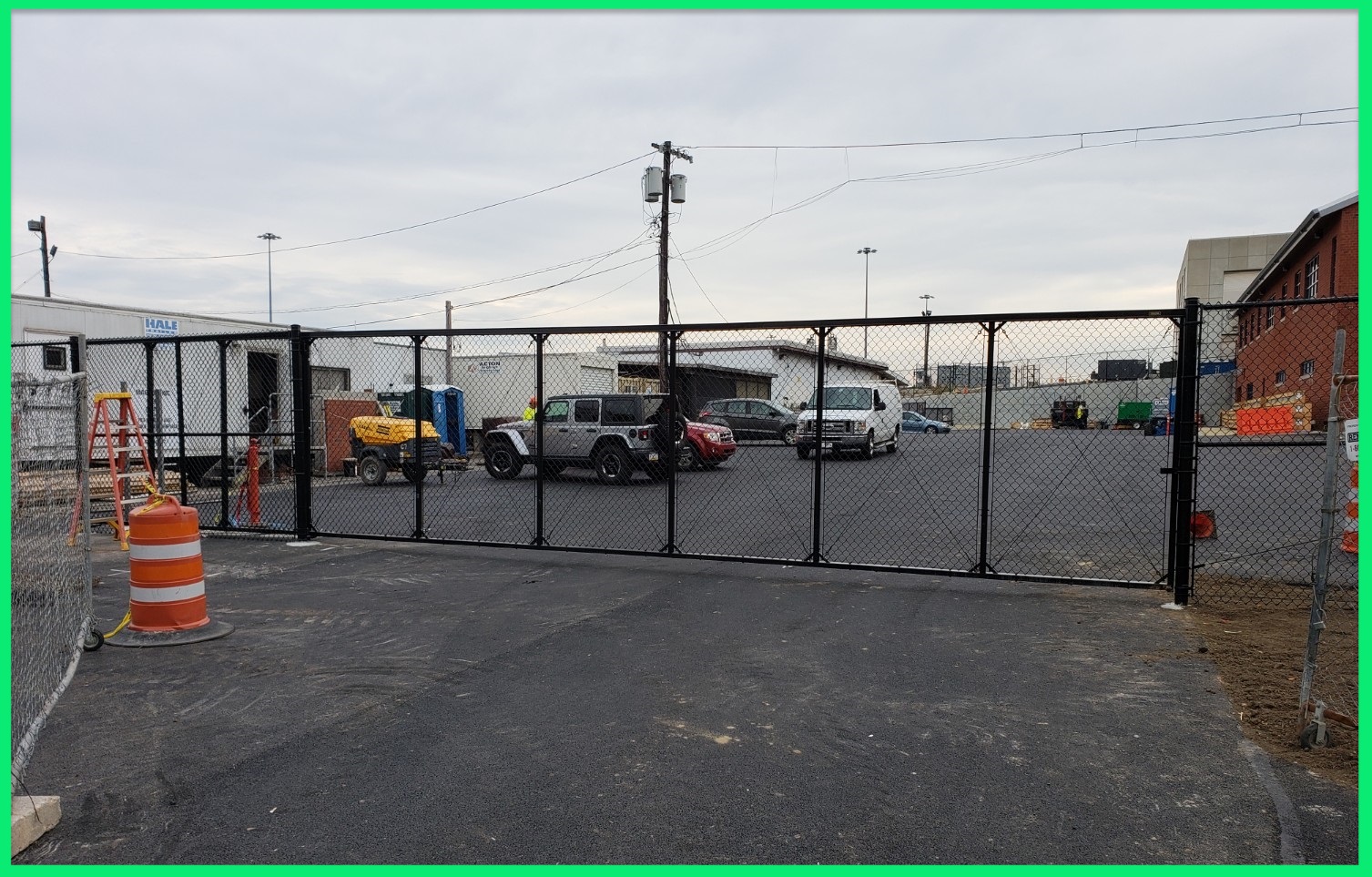HAVING FUN LEARNING MY NEW BUSINESS

February 20, 2019
by a searcher from Carnegie Mellon University - Tepper School of Business in Reading, PA, USA
SEARCHFUNDER INTERVIEW OF BRENDEN VAN BUREN 
We spoke with Brenden van Buren who co-founded Generational Transfer Entrepreneurs and acquired Pro Max Fence Systems.
How did you get on the search fund path?
I worked in a large family business which specialized in heavy highway construction and construction materials supply. I am fifth generation with many other family members and wanted to break out and have more senior level management responsibilities. I decided to leave and went to work with my dad on a company that he had acquired doing his own search (not using the search fund methodology). Our goal was to acquire, manage and grow more businesses. At about the same time, I applied to business school to learn more about small acquisitions and entrepreneurship.
I found out about search funds from a classmate of mine at Carnegie Mellon, Rob Southern, who is Jim Southern’s son. I then met with one of my professors at Carnegie Mellon who encouraged me to do more research about search funds. It was enlightening. While in school, I decided that I definitely wanted to search and buy a business. CMU was incredibly helpful in helping me in this path as I quickly joined the EtA Track. My dad and I adapted some of the search fund techniques to form Generational Transfer Entrepreneurs, to allow multiple people to search alongside us. It was a no-brainer with what I wanted to do and learning about this thing called a “search fund.”

Tell me about your search.
The search process starts about a year before you actually start searching. I reached out to all the previous searchers to build a system that would be as successful as possible. I talked to dozens of searchers to figure out what went right or wrong, what they liked about interns and didn’t. Do we want to do a proprietary search, opportunistic or both? I like the proprietary channels. As someone who has always really liked working with people, I like the idea of having a lot of interns working with me.
We then had to figure out what was the best system. We had to figure out where we should get our lists from. A lot of that came from previous searchers on what worked well for them and what didn’t. At GTE, we had 20 interns at any given point in time. 6 of whom were on my team. I was looking at the construction industry based on my background. We sent out several hundred emails each week. The company I acquired was through one of those letters.
It’s amazing how different all your owner conversations go. That was probably one of my biggest lessons learned: Take every call. There is no such thing as a bad meeting or a bad call. For this business, the first call went very well. The owner wanted to meet very quickly. I just happened to be in the area. We got together on a Saturday. What I thought would be a one-hour conversation turned into a 4-hour discussion.
The search process was to grind through as many lists and owner phone calls as possible. I probably took 3 to 6 new calls per week for the year. That leads to a lot of potential companies, somewhere between 150 to 300 companies, just having first calls.
How many LOIs?
Our IOIs looked a lot more like LOIs. In our discussions, before we got to what most people would get to on an IOI, we were talking to owners about price and making verbal offers and then sending IOIs. We did the IOI before spending money on attorneys to do a more binding LOI. I had 6 or 7 IOIs and just the 1 LOI. I probably made verbal offers of some sort – just trying to figure out if their price was ever going to be close to ours – on a couple dozen companies.
Were there any IOIs that you were disappointed did not go through to a deal?
There were a couple of those. One of which was more surprising than disappointing. The owner and I had talked about price several times. I originally thought we would never be close to the owner on price. So, I told the owner so in an email. He responded that he thought we would be close and he was interested. He responded, “No, no, no. I think we’ll be closer.” I then met with him for a third time, informing him that the terms we were offering was as good as we could do. He seemed to accept it and asked that I draw something up, saying “I think that will probably be good.” He was a cabinet maker, which sounds like a boring business. He had a lot of growth opportunity. He was a craftsman. So, he hadn’t been working on the business at all. I was very excited about that one. It was also close to where I was living, which has its benefit. It turned out we weren’t close on price after all. As I said, it was more of a surprise than disappointing.
What do you think happened in hindsight?
In hindsight, I think a broker contacted the owner around the same time that I did. I think the broker put a number in his ear that was unrealistic as far as the business’ value.
How long did it take you to go from IOI to closing your acquisition?
Around 6 months. The first IOI was sent around December 14th. We negotiated that for another month or two. We signed an LOI in late February. We closed June 22nd.

Any hiccups along the way?
A few, but they were standard things. For instance, you thought you’d discussed the point, like the seller note, and then maybe his lawyer got in his ear maybe or wanted to push it a little more. Nothing major. The diligence surprised us a lot. The business was in better shape than we anticipated during the diligence.
That’s always a happy surprise.
Yes. It’s construction which generally has many single job contracts. But, there’s more recurring aspects to this business than we anticipated. The software he was using in this field made it very easy to go through his books, talk to him about his financials and confirm his financials. We did an asset sale. We did a fair amount of diligence on the legal side to ensure there weren’t big liabilities lurking out there. He was getting paid quickly and he paid his vendors well. All those things were better than we were anticipated going into the process.
Did he have a business advisor or broker?
No. He talked to his accountant and his lawyer. In the early stages, his accountant was advising him. Once we got to the LOI stage, he was working with his lawyer.
Any lessons learned during the diligence process?
I would have clarified a couple of points earlier, relating to the seller note, how long the payback period would be and if there were interest only periods and how long those would be. I would have clarified a little more in the IOI or LOI. It added more stress on me having to re-negotiate points that I thought were already done.
Tell me about your first day.
It flew by. I met with everyone the first day. At GTE, we have a CPA on staff. The CPA and I came down together. I worked on more of the operations side. He was talking to the office staff to ensure that we were going to be able to work and pay every one the first week. Getting payroll squared away within 1 week is a lot of work. We must have certified payroll for government projects. There was a lot to go into that that had to be condensed into 7 days.
The first day was meeting all the crews and then shadowing the owner. The way it works with the previous owner is that he’s been doing his day-to-day tasks and I shadow him. Next month, we will switch. I will do the day-to-day and he will shadow to let me know things that he would do differently. That way, I get his processes all down.
The first day we started on working on how to schedule all the crews. And, on the other side, making sure the accounting system was ready to accept payroll come Friday.
Did the employees have an idea beforehand that the sale was taking place?
No. The owner and I discussed making an announcement. He made the announcement to the office staff on Wednesday evening and the crews on Thursday. We closed on Friday. I arrived at the office on the Monday.
The Vice President, who ended up buying a little back into the company with us, knew a little earlier.
So, I’m interviewing you 1 month into operating.
It’s been a very busy, crazy month. My background in construction has helped in the transition, but there’s a lot of knowledge in the owner’s head, trying to get as much of it out as possible is a lot of work.
How long will the owner stay on?
We negotiated a 90-day full time consulting with an option to extend another 3 months if we wanted. After that, there is 9 months of part-time consulting. The goal is from months 3 to 12 to drop down to 10 hours per week.
What do you think so far?
I am having so much fun learning about this business and then working with this staff. The owner did put together a great team. I’ve had a great time working with all of them. How well will you mesh with the team is always a question going in. It harkens back to the first conversation I had with the previous owner, which lasted 4 hours, and a lot of the following conversations. We just had a lot in common. Russ built a team that had other things in common with him. So, just by default, I have a lot in common with the people here. That’s been very helpful.
Any other priorities for this first period (beyond getting to know the people and addressing the accounting/payroll)?
The number one priority relating to operations and business is learning how to schedule all the crews as efficiently as possible so that's probably where I spend the vast majority of my time. Each day is just learning from the previous owner what he does and the processes he follows to do that. There's also making sure billings are out. We're going to do our first month end accrual next week. Then, there's the typical owner tasks. The priority is really making sure the scheduling is done as efficiently and effectively as possible.
You’re just a month in and may not have had a chance to digest things. But, is there anything that you know now that you wish you had done differently?
It's probably a little too early to say. They're small things. Following the example in the ^Greg Ambrosia case study, I have been taking daily notes after everyone leaves and just writing everything that I can remember from that day down. In some of those, there are clearly some little things like: “I wish I would have had the handbook ready on Day 1 to introduce to everyone.” Nothing huge, probably maybe just a little bit better introduction on Day 1. On the other hand, I was trying to keep it short and simple which I think helped. I probably could have a little bit more preparation from an HR side.
What do you mean as far as a better introduction?
I think more about HR policies. The goal (which we told them) was “We're going to try to keep everything close to or similar to what you've been doing as possible.” But, there's going to probably be some minor adjustments and having a couple those suggestions that I probably knew at that point just ready would have been helpful
In the construction industry, there's always call offs. I think we probably could have introduced ourselves a little bit better to try to prevent the call offs.
What is a call off?
A call off is whenever an employee calls you in the morning of, saying “I won't be there today. I'm sick.” Sometimes health is the issue, many times they just might not feel like coming in to work; unfortunately, it can also be personal issues or something at home. In construction with a blue collared worker, it's not uncommon. We’ve seen it in our family businesses for years. We've come up with solutions that really help with that. The goal is to implement them. I'm waiting for a roll out of a new handbook and some other HR policies with our 401K, which will be ready next month. While all the guys were together in one room, it would have been helpful to have some of that stuff prepped before showing up. There's just so much to do leading into the closing that having an HR policy ready to go would have been tough.
Wouldn’t you worry that you might send too strong of a signal of there being “a new sheriff in town."
It's one of the things I go back and forth in my head. The way we would have worked the policy is to give more incentives versus disincentives -- which is what we will do. More of “Here are rewards you can expect if you do these things” versus “These are your punishments if you don't show up.”
Here's goals that I would have for you as we progress. Just having some of those in place earlier would have been very helpful. I haven't even done it yet. We're in the middle of the summer and construction is very busy this time of year. So, bringing the guys together is a big-time loss. Thus, it would have been helpful while everyone was together that one day at once to roll out couple things earlier.
That’s a very interesting point based on the industry you are in. Anything else about your experience so far that you’d like to share with other searchers?
The busy season is different for every company. If we had closed a few weeks earlier, I think it wouldn’t have been as big of a deal. We just hit right as a lot of jobs were coming in for them. So, timing is everything there.
As far as other lessons learned, it's early on. Building a good relationship with the owner and the staff is just so important. I think we've done that well so far. A lot of that relationship was built during the acquisition process. Stressing how important that is for the transition. You always hear the negative stories of: “I showed up and the owner was gone and barely doing anything within a week.” That hasn't been the case here at all. Does that mean this is the right way to do it? I have no idea. But, building the relationship has been very helpful for me
So, it was ambitious doing your own search but then doing a search while starting your own search enterprise. Do you have limitless energy?
My wife will tell you that I never stop working even at home. On top of it, we have a 5-month-old. She was born about a week before we signed the LOI.
It’s been a very busy six months.
I think it just comes down to building the correct processes. If you're building the one process for yourself, how much of a difference does it make if you build five people at once. A little bit of it was economies of scale. I had good partners along the way. For example, Gabe Chick, who is working at GTE now. He was brought on very early in the school year of our second year. He and I basically had been trying to prep the whole system before we even showed up. There's always tweaks. While you're making the tweak, it's improving everyone else’s search. You probably would have made the tweak anyway. Then, we hired a person to handle our search management which I was doing originally. So, a lot of stuff just slowly went off my plate. I just had to teach other people to do the stuff I was doing early on. Maybe there's a little bit of more energy but for a lot of it, you must build the process anyway and you really want to analyze what you're doing. Having a team around you to do that probably builds enough efficiencies that the loss of efficiency from trying to build both at the same time might not be a break-even but it comes pretty close.
I must ask you about the conversation with your wife when you said: I want to start a search fund plus I want to form an incubator, GT entrepreneurs. What was that like?
She always knew that I just like to go. Going into business school, the goal was that my dad and I wanted to buy more businesses and grow them by finding inefficiencies in them or where they're missing their sales opportunities. She knew the goal and was pretty accepting of my wanting to search and start the enterprise. It was a clearly stressful for her as far as the question of where are going to live.
But, having me work a little bit extra probably wasn't that much different than what we've always had, because I always had some sort of side project that I was working on while at work. This was just the side project. I know a lot of business schools have a lot of work -- but with all the analytical stuff that we end up doing at Carnegie Mellon on top of the regular MBA curriculum, I probably worked less after grad school than I did during grad school. So, she was probably happy as far as that goes. It was more of the uncertainty of where we were going to be. She was in grad school while I was in grad school.

Congratulations on having a baby and buying a company at the same. Those are some huge life changes all at once.
Whenever you search right out of school, everyone is in a similar boat, maybe you are just married or just about to get married, and then maybe you have a kid or maybe you have one while you're searching. At the age of 28 to 35, there's a lot of life events going on. So, they just all end up getting compounded on top of each other. They're all rewarding experiences you sometimes have to slow down and look at everything that's going on. It's tough to do it all at once. I think I did help convince my wife a little bit when we went on a two-week vacation right before we closed, being pretty certain that everything was going to be finalized. I think it helped alleviate a little bit of her stress.
Tell me about where Generational Transfer Entrepreneurs is now and where you think it's headed in the future.
Right now, we've closed on two companies. We just hired someone to replace me. We'd already hired someone to replace Tom which was the first acquisition. With anything you have the chicken-and-egg problem. You must show successes before everyone starts coming to you but we have been having success getting interest at least from Carnegie Mellon and the school has been helping us out a lot in terms of both work area and space and then also finding good recruits and advisors. Where I see us is with 3 to 5 searchers every year, continuing to go forward and gaining more investor recognition as well as we close a few of these deals. Most of the money was started with our family money and some close personal family friends as well. We've been getting a lot more traction since we closed on two deals with people being interested in what we're doing. I see us continuing to grow that way. We will need more office help as we get bigger. Right now, for the non-searchers, we've got our search manager, our accountant and then my dad, as the managing director. We currently have 3 searchers after replacing Tom and I
What do you think differentiates Generational Transfer?
The biggest thing is just the types of companies that we will look at. The search fund model has very specific parameters some of which are followed very strictly by some other groups or by the investors themselves. Our investors backgrounds are in slightly different industries. As a result, we are pretty industry agnostic. That being said, we're looking for searchers that have some experience in the Industry. If I wanted to go buy a tech company, I don't know if I would have gotten support for it. Tom buying a tech company made a lot of sense, even though he ended up with a medical company.
Our ability to look at a different box then some other groups is our main differentiator. We've been flexible in what types of deals we allow the searchers to do as far as what types of deals they can look at and then also how the deal ends up getting structured. We also allow the searchers to add their own money or friends and family money on their deals. I’d classify us almost like an accelerator on the Harvard model or something like that.
A lot of searchers are concerned about the mentorship aspect of it. Can you talk a little bit about that?
This goes back a little bit to the chicken and egg thing. We have built a group of people that have experience in business. Our family’s network is large in terms of Industry. Tom, who I mentioned was our first searcher, bought a medical company that had a practice and a device. We quickly found within my dad's personal network, a person who had built out an orthopedic practice in the past who had run that from two offices to 8 offices. We knew what type of mentor would be good for that business and brought that person along as a paid Advisory Board position. The goal is to have mentors for the searchers
As companies are acquired, we end up being able to help each other out a lot. For example, yesterday I was on the phone with one of our other Searchers about a deal that he was looking at just based on looking at similar deals to them. Then my dad being fully involved on the day-to-day, he ends up talking to each of us all the time about where we are. Our family business was fairly large; we did just shy of a billion in sales. He helps mentor a lot and was the chief operating officer of our business of our family business before we went out and start doing things on our own.
There’s mentorship there and the goal is to use our personal networks to for mentors as we grow.
You discussed searchers with industry experience. Is there anything else that you're looking for in GTE’s searchers?
I think it’s the ability to be in some industry. Gabe was in the military before getting his MBA. He’s looking at businesses that would have similar workforces to that. The real key that we look for is the ability to manage people because you can get some really smart MBA's who can solve problems really well but we're buying companies with people that already are there. Being able to manage them on Day One is incredibly important. That's the number one thing that we probably look for.
Anything else you'd like to add?
We received some great advice got from some very smart people as we were starting up our search. There are a lot of different options out there now. They should all be explored before deciding. Do you want to do a search fund? Do you want to get into the group? Do you want to self-sponsor? Or, do you want some hybrid of all them? Go and see what the pros and cons are. Each choice is different. Each one is better for different people for different reasons. That's the best advice I got because we were trying to decide do we start up GTE, do I just go do a search fund, or another option? I spent the whole summer researching everything. I skipped an internship offer that I had that was pretty nice to go and make sure that I made the right decision for myself in terms of searching.
Talk to everyone and learn the pros and cons from the people that are doing it.
That's all the questions I have. Thank you for your time.
Great talking with you.
Summary of Insights
Here are our a few of the key takeaways from our discussion with Brenden:
- • Take every call. There’s no such thing as a bad meeting or call.
- • Clarify the seller note early on.
- • In preparing your Day 1 introduction, there’s a trade-off between assuring the employee base of continuity and a desire to make changes. The seasonality of your business may impact your timing of changes.
- • Building a good relationship with the owner pre-acquisition is paramount.
- • Fully investigate the different search models to choose the one that best fits you.

from University of Notre Dame in Pittsburgh, PA, USA
from INSEAD in Toronto, ON, Canada